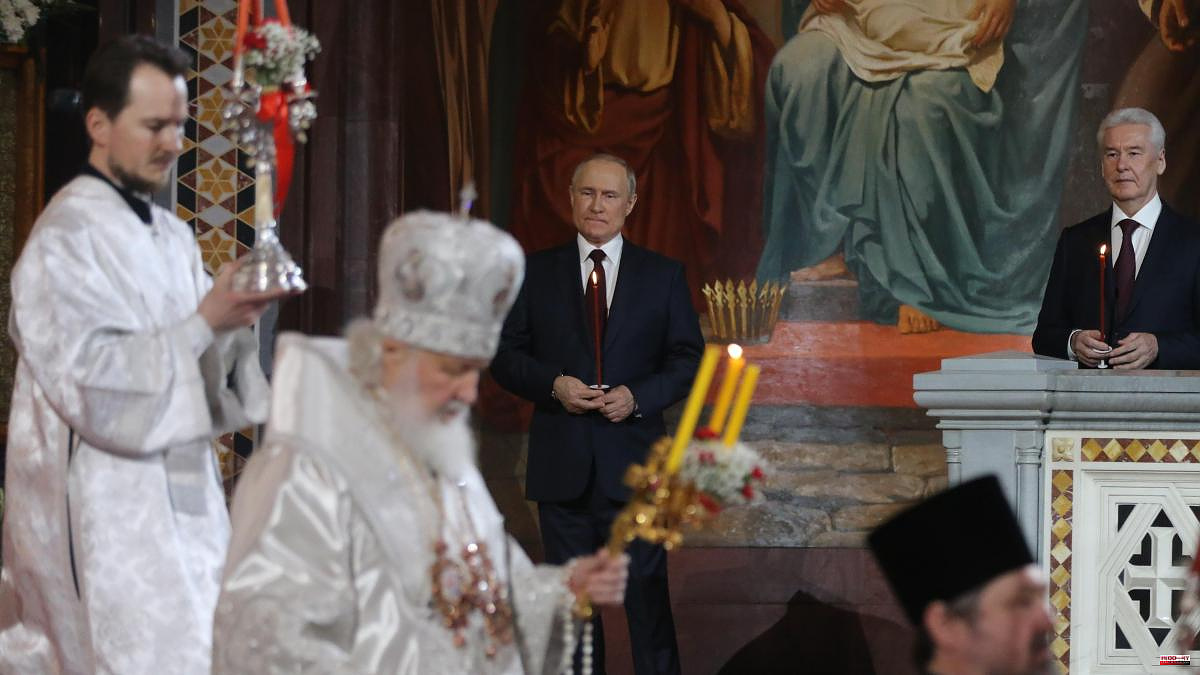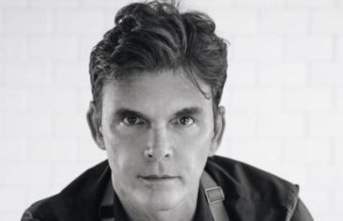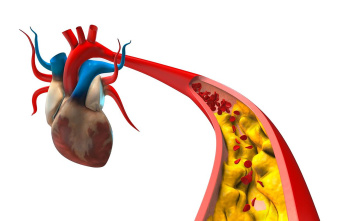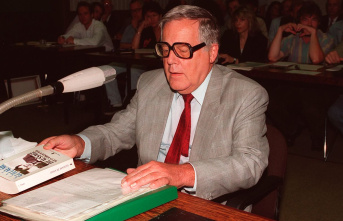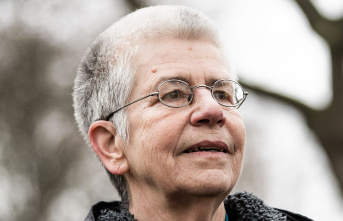Ukraine is being the scene of three wars: the one waged by the Moscow Patriarchate against the autocephalic Orthodox Church of Ukraine, and those of Putin's Russia against the former Soviet republic and against NATO and the West. This is explained in this telephone interview by José V. Casanova (Valdealgorfa, Teruel, 1951), emeritus professor of Sociology of Religion and Theology at Georgetown University (United States) and one of the world's leading specialists on the Orthodox world.
Is there a religious dimension to the Ukraine war?
Yes, and it is double. On the one hand, it is a war against Ukraine because the Moscow patriarchate says that it is their canonical territory, that Ukraine is part of holy Russia or the Russkiy Mir and that therefore it must be incorporated into Russia. The other dimension is a war between Russia and NATO, the Western world. The idea that Russia is defending the traditional values of Christianity against a decadent Western Europe and world that has abandoned them in favor of liberalism, secularism, feminist rights, homosexuality...
Does Russia stand as the bastion of the Christian confession in Europe?
But Christian confession in a traditional model. They wanted an alliance with the Catholic Church, hence the importance of dialogue with the Vatican, and with American fundamentalist evangelical Protestants. At this level, they have worked hard on what is called the global cultural wars, especially on the rights of the "traditional Christian" family. And they have been organizing family congresses with American evangelicals for 15 years. There is an alliance above all between the Russian Orthodox Church, American evangelicals and groups of Catholics who are also conservative, groups that are against Pope Francis and have joined them.
They have the support of populist and far-right parties and some governments, such as Hungary, or in his day Trump's...
Yes, it is a part of the process. But of course, once this cultural war becomes a real bloody war there are casualties, as is the case of Poland, which was more or less in that camp, and has now moved to the other. The war has complicated everything, because it is very difficult now for any of those agents to make an alliance with Putin. But that was the idea. Anti-European populist parties, and above all anti-immigrants, together with anti-feminists… Our Vox is the party that fits perfectly into this type of alliance.
Would Vox be the ally of the Russian patriarchy and Putin in this culture war?
In the cultural war, yes, in the real war it is very difficult for these parties to support the war… It is not a perfect union either between Putin and the war. There are two aspects of that conflict. The Russkiy Mir was already used as a concept by Putin before the alliance with the Orthodox Church, but originally he only had the idea of defending Russian-speakers in the former Soviet Union: Estonia, Ukraine, etc.
When does Putin seal his definitive alliance with the Moscow Patriarchate?
The union between the Russian Church and the regime becomes stronger from his second presidency. But the definitive alliance was sealed two years later in 2012.
Casanova remembers that that year Pussy Riot, the feminist punk rock group, burst into the Cathedral of Christ the Savior in Moscow to ask the mother of God to rid the world of Putin. That act causes the definitive alliance of Putin with the Patriarchy. Its leader Maria Alyokhina, under surveillance and under house arrest, fled Moscow a few days ago disguised as a food delivery woman.
It is from that moment on that Putin reaches the definitive alliance with the Patriarchy. Before, Putin spoke of Eurasia as a project and did not name the Church. But it is very significant that he started doing it after the invasion of Crimea, in 2014.
Are Ukraine and Russia two different models of Church-State-Nation relationship and Civil Society?
Not at first, because they both come from the Soviet Union. The Soviet was an officially atheist state that imposed secularization from above but at the same time accepted the Russian Orthodox Church as the only Church. What has happened in Ukraine is that it has maintained a neutral secular state that does not support any church as a national church. There is a model of a very large but egalitarian religious pluralism because all religious communities are part of the Association of Churches and Religious Communities of Ukraine, which has 15 members. The presidency rotates every six months and is held by any of the churches or denominations. It is a civil association, without State interference. On the other hand, the Russian Church is not officially a state church because being an empire it has other ethnic groups that cannot accept it, but it is considered to be the ethnic church of the Slavs, and all Slavs have to be affiliated with the Orthodox Church. Russian.
The religious pluralism of Ukraine was manifested in the orange revolution of 2013 and the Maidan square…
Yes, on Maidan it was shown that there was no national State Church. All the religious groups were together… And each funeral for each of the victims, be it Greek Catholic, Orthodox, Armenian or Jewish, they presided over it together. What was also striking on Maidan is that people spoke Russian and Ukrainian indifferently, without questioning anything. This religious and linguistic pluralism is the basis of the formation of a non-ethnic territorial civil nation-state and is what has somehow been institutionalized in democratic Ukraine.
Something that Moscow does not accept.
This has led to a schism between Constantinople and Moscow. And also since 2014, when Moscow realized that the Patriarch of Constantinople was ready to accept the reunification of the new Ukrainian churches under his jurisdiction. Each Orthodox nation or nation-state has an autocephalous patriarchal national church, like the one in Ukraine, which has been in communion for four years with the patriarch of Constantinople, but not with the one in Moscow, which is also in conflict with the one in Alexandria. It is part of a war within the Orthodox world over Ukraine. In Ukraine there are two transnational wars. In addition to the war between Russia and Ukraine, there is the war between Russia and NATO over Ukraine and there is the jurisdictional war between Moscow and Constantinople over the Ukrainian Orthodox Church.
And resort to Nazism?
It is the way to mobilize people. If they are our brothers, “little Russians” in the official imperial Russian language of the 19th century, how are we going to annihilate them? We can not. We can only annihilate them if they are not free because the Nazis have taken over them. If they are Nazis, it means that they are not free and they must be freed. This logic holds that you have to destroy them to free them.
What role do you think the Catholic Church, Pope Francis, can play?
The Catholic Church can only play an important role if it really accepts the Ukrainian churches as essential interlocutors. The problem with the Pope is not that she has wanted to talk to Moscow. The problem with the Pope is that he has not wanted to talk to the Ukrainian Orthodox Church. He has accepted Moscow's blackmail that if they talk to the Ukrainian Orthodox Church it is the end of the dialogue with Moscow. Every time there is an ecumenical interreligious congress where there are Catholic bishops and Archbishop Hilarion appears, the representative of the Orthodox Church outside of Russia, neither Ukrainian Orthodox nor Ukrainian Greek Catholics can appear. The Vatican cannot work with Russia in the same way that the United States and Russia work with Ukraine. The Ukrainians finally have the right to be their own agents. The problem is that now it is going to be difficult, because this has turned into a war between Russia and NATO. But the Pope should listen less to the "barking" of the great powers, Russia and NATO, and more to the groans, the cries of despair and the authentic voices that come from the Ukrainian people.
Ecumenism...
For the Russian Orthodox Church, ecumenism has always been reduced to what Antonio Spadaro SJ, editor of La Civiltà Cattolica, called "the ecumenism of hate," which has little to do with religious ecumenism, and much more to do with moral discrepancies, on all about gender. Those who are with us on these ideological questions, with them we have a strategic ideological and not religious dialogue against the common enemies. The Russian Church has never entered into authentic religious ecumenism, because they do not accept the idea of a religious pluralism that practices what Pope Francis calls the culture of encounter with the other, with the schismatic, the heretic, the infidel, as a religious interlocutor. . They have never practiced authentic religious ecumenism. They seek, as Hilarion has repeatedly said, a strategic alliance with conservative religious groups to confront secularism, secularism, feminism, the EU and the decline of the West. This is not a theological dialogue. And it is seen in the Havana document of 2016, when the Pope and Kiril, the patriarch of Moscow, met: there is very little religious ecumenism there. There is simply a geopolitical agreement
A cultural war for the moral order, wow.
The religious question today is fundamentally a moral question. Not in Ukraine. Its Christian churches and the Jewish and Muslim communities do not seem to be obsessed, unlike the Orthodox Church in Moscow, with moral conflicts over gender and gay rights issues. In fact, in the West and in large parts of the world we have learned to live with religious pluralism, but we still do not know how to live with true ethical-moral pluralism. And that is what is at issue today, in the global culture wars. In American society, religious pluralism was never a problem for democracy, but today moral ethical pluralism is for American society, as well as for many European democratic societies.
But moral ethical pluralism leads to polarize societies.
Yes, and in a way that religious pluralism no longer has. We are in a moral polarization, fundamentally in questions of gender, which has been the most important moral revolution in the history of humanity in the last fifty years. The changes have been very drastic and societies are responding to them. For example, in the Netherlands, one could not easily imagine that this would become a flash point of conflict. However, in the Netherlands, a liberal party that initially emerged as an anti-Islamist party defending gay rights, quickly became an anti-immigrant, xenophobic, anti-Muslim party, defending culture (not religion) Christian, as the authentic native European culture. Such a position, found throughout Europe today, is not often advocated by practicing Christian Europeans, but rather by secular post-Christian Europeans. Through this transformation, societies are polarized.
The world seems to be turned upside down.
At the beginning of the war, I hoped that we were facing a unique opportunity, a global kairos, a historical moment conducive to creating a new international order based on agreed rules that could be upheld by the international community. A situation like the current one in which Russia, a superpower that is a member of the United Nations Security Council, is the one that violently breaks the rules of the international system and also wields nuclear blackmail, is clearly a moment that forces us to reflect on the need to reform the global system. But the West would be wrong if it were under the illusion that we are in a new version of the bipolar cold war between the free democratic Western world and the "authoritarian" other world. Much of the so-called “global South” has no interest in this war and is not going to take sides either for or against Russia. The neutral world in this war, at the population level, is much larger than the one represented by the West. The ultimate question is going to be what position China and India take.
Russia, with the war, presents itself as a power.
The fundamental problem is that the Soviet Union became the Russian Federation without there being a moment of historical reflection on its past. When Putin says that the dissolution of the Soviet Union was the greatest catastrophe in the history of the 20th century, this leads to a recomposition of the empire, without reflection, and without critical historical memory. The problem is that Russia is not a nation, it is an empire. Zbigniew Brzezinski already said it: Russia without Ukraine is a nation; Russia with Ukraine is an empire. Russia does not want to be a European nation like the others, it wants to be an empire within Europe. In his first presidency, Putin sought a global role for Russia as part of Eurasia. But now I am afraid that she wants to be part of Europe against the very idea of Europe. It wants to be a European power to destroy the European Union.
4

